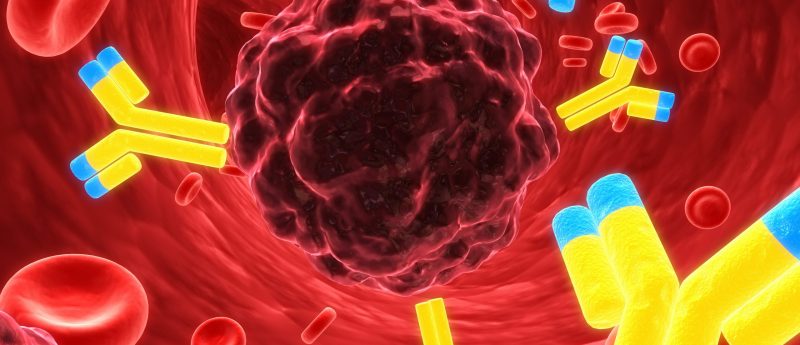CAR-T mesh shrinks ovarian tumors in mice

CAR-T cells implanted onto thin metallic meshes have shrunk solid ovarian tumors in mice.
Research published in Nature Biomedical Engineering has described the construction and application of a novel CAR-T mesh in mice with ovarian tumors. The study, led by a team from Hutchinson Cancer Research Centre (WA, USA), showed the tumors initially disappeared within 10 days in all the mice that were treated with the mesh. It is hoped that this new delivery system will enable effective treatment of solid tumors with CAR-T therapy in the future.
By utilizing a metal film that is seven times thinner than the average human hair — produced by a funder of the study, Monarch Biosciences (LA, USA) — the team from Fred Hutch Clinical Research Division (WA, USA) were able to apply CAR-T cells directly to the tumor site. All the mice treated with the mesh demonstrated a massive reduction in tumor size, 70% of which remaining tumor-free 20 days post-treatment.
“Cell therapies to fight cancer have had great success in blood cancers but haven’t worked well with solid tumors,” commented the lead author, Matthias Stephan (Fred Hutch Clinical Research Division). “Our findings take a significant step toward making cell therapies effective against solid tumors by showing that a thin metal mesh loaded with T-cells engineered to fight ovarian cancer cleared tumors in 70% of the treated mice.”
While CAR-T therapy has shown great promise in treating blood cancers, the therapy has struggled against solid tumors due to the CAR-T cells becoming depleted and exhausted after prolonged periods. To combat this, the researchers specifically designed the biocompatible, nickel titanium (Nitinol) film with a structure to encourage the CAR-T cells’ expansion and growth, by utilizing a ‘maze-like’ pattern of straight lines and a spacing that formed small compartments.
After designing the mesh, CAR-T cells, engineered to target the ovarian cancer marker ROR1, were applied to each side, allowing them to fully infiltrate the film and seed the small spaces. Once the mesh was applied, the cells were able to be released from the pores, to treat the cancer in a localized manner.
The paper also described the use of a CAR-T coated tube, similar in design to the mesh, which was able to prevent the infiltration of cancerous cells. Researchers believe this technique may be particularly useful in treating lung or digestive cancers. These cancers are currently treated with stents to prevent the obstruction of passageways; however, the team believe their new device may be a more appropriate method to combat these tumors.
If the product can achieve positive results in clinical trials, the team hope the new treatment will enable an effective therapy for tumors such as ovarian and pancreatic cancers.
Sources: Coon M, Stephan S, Gupta V, Kealey C, Stephan M. Nitinol thin films functionalized with CAR-T cells for the treatment of solid tumours. Nat. Biomed. Eng. doi:10.1038/s41551-019-0486-0 (2019) (Epub ahead of print); www.fredhutch.org/en/news.html
Have any additional questions about this story? Ask us in the comments, below.
Find out more in these top picks from the Editor:
- CAR-T immunotherapy enters clinical trial against first autoimmune disease
- Next generation CAR-T cell therapy could fight solid cancers
- ‘Smart CAR-T’ immunotherapy safer and more effective in mice